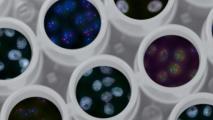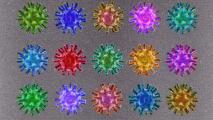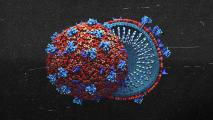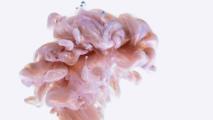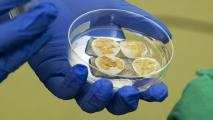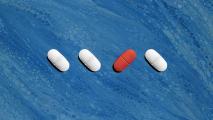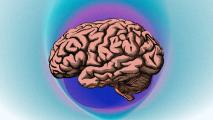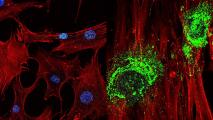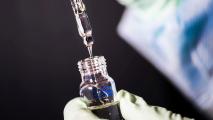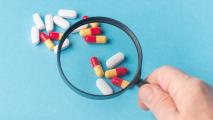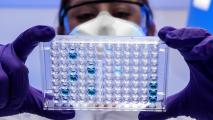
Biotech
Human history has been all but defined by death and disease, plague and pandemic. Advancements in 20th century medicine changed all of that. Now advancements in 21st century medicine promise to go even further. Could we bring about an end to disease? Reverse aging? Give hearing to the deaf and sight to the blind? The answer may be yes. And soon.
More
Anti-aging isn’t a scam, but immortality almost certainly is
A new biotech firm with $3 billion in funding has announced plans to combat aging. But what does that mean for human life span, exactly?
Hugging a cushion that “breathes” can reduce anxiety
A study found that hugging a cushion that “breathes” was able to reduce anxiety for students prior to a test as much as guided meditation.
Clues to schizophrenia and bipolar disorder hidden in the dark genome
A new study suggests that the causes of these disorders are hidden in “dark genes,” which may account for the enigma of their development.
Moderna will develop mRNA vaccines for Ebola, malaria, other major threats
Moderna is developing mRNA vaccines for 15 “priority” pathogens and launching a program giving other developers access to its mRNA tech.
Scientists discover how the AIDS virus breaks cellular “lockdown”
HIV replication continues even when infected cells shut down. New research shows how.
Psychosomatic illness: Are some diseases caused by our memories?
The brain appears to remember immune responses, and memories can trigger them to happen again.
Baby thrives after first-of-its-kind heart transplant
A baby’s first-of-its-kind heart transplant could help future patients avoid organ rejection and reduce the need for immunosuppressant drugs.
How the antidepressant Prozac could treat blindness
Prozac is a widely used antidepressant. Data indicates that the drug could be used to prevent blindness due to macular degeneration.
Brains scans of the placebo effect show new way to treat depression
A meta-study of placebo effect research has revealed a link between the phenomenon and brain stimulation as a depression treatment.
Digital sound archives can bring extinct birds (briefly) back to life
Sound recordings remind us that these beings are invaluable, and that humans have a duty to preserve them.
New antidepressant helps patients in just three days
Adding the new antidepressant zuranolone to standard treatments helped people with major depressive disorder feel better in less time.
How a bedtime routine may affect your brain — and your sleep
A mouse study has yielded new insights into the effect of a bedtime routine on the brain, which could lead to new therapies for insomniacs.
Spinal cord implants help paralyzed people walk again
A new spinal cord implant uses electricity to reawaken spinal neurons.
New tech cuts years off of DNA sequencing
The Stanford Medicine team set a new record for DNA sequencing. They went from obtaining a blood sample to diagnosing an illness in just 8 hours.
Sonic waves could help bones grow back after cancer
A technique that turns stem cells into bone cells using only sound waves could help people regrow bone destroyed by disease.
90% of drugs fail clinical trials – here’s one way researchers can select better drug candidates
It’s disappointing when the years of effort and resources spent to push a drug candidate to patients so often lead to failure.
What the Russian invasion means for clinical trials in Ukraine
Russia’s invasion has the potential to disrupt clinical trials in Ukraine, warns one of the many companies staging trials in the nation.
Researchers convert donor lungs to universal blood type
A new study reveals that if donor organs were treated with specific enzymes, any organ could become “universal” and be more compatible with recipients of any blood type.
How mRNA and DNA vaccines could treat autoimmune disorders, genetic diseases, and more
Using DNA or an mRNA vaccine, researchers are investigating the feasibility of essentially replacing missing genes that cause disease.
How close are we to curing blindness?
New approaches to curing blindness are heralding a future in which fewer people have to live life completely in the dark.
Get inspired with the most innovative stories shaping the world around us.















